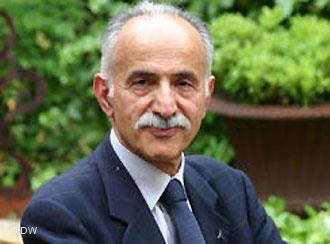
Karim Lahidji
Karim Lahidji, Vice-president of International Federation for Human Rights (FIDH) and President of the Iranian League for the Defence of Human Rights (LDDHI), said today: “The demise of Hoda Saber in Evin Prison is another sign of the looming human catastrophe in Iranian prisons.
The conditions in those prisons are by far below the international standards and are deteriorating day by day. The authorities are responsible for the safety and lives of all prisoners, but they have consistently failed to treat prisoners – in particular the prisoners of conscience – fairly and humanely. Most prisoners are denied proper and adequate medical and health care. Experts of the Lyon-based International Observatory of Prisons have been asking unsuccessfully to visit the Iranian prisons for several years. The international community should persuade the Iranian authorities to open the prisons to such visits.”
Reports from Iran indicate that another political prisoner, Mr. Hoda Saber died in custody in Evin Prison, in Tehran, on 10 June 2011, after a week of hunger strike in protest to the death of Haleh Sahabi who had died as a result of an attack by security agents.
In a testimony published on 13 June, 64 political prisoners – all Mr Saber’s fellow prisoners – declared that after feeling of pain in his chest and digestive disorders, “Hoda Saber was taken to Evin Prison’s clinic at 4 am on Friday 10th June, but was returned after two hours, while he was still writhing in pain and saying that he had been beaten up and insulted in the clinic.” Following the deterioration of his conditions and his complaints of having diarrhoea and nausea, he was taken away again on a stretcher a couple of hours later and died under unclear conditions on the same day.
Hoda Saber (born 1960), a journalist and political activist, had been detained several times during the past decade and spent long periods in prison, ranging from several months to two years. At the time of his demise, he had been in detention since 24 July 2010.
Over the past couple of decades, numerous Iranian prisoners have died in custody as a result of torture and other forms of ill treatment, denial of medical care, negligence of prison authorities and a possibly deliberate policy of getting rid of certain political prisoners.
The following are some of the Iranian prisoners of conscience and political prisoners who have lost their lives in custody over the past decade, but the list is by no means exhaustive:
Zahra Kazemi (f), Iranian-Canadian photojournalist, died as a result of blows to her skull in Evin Prison, in July 2003.
Ali Batrani, an Iranian Arab, died during demonstrations in Ahvaz (Khuzestan), in April 2005.
Akbar Mohammadi, a student activist, died in Evin Prison, in July 2006.
Valiollah Feyz-Mahdavi, a political prisoner, died in Evin Prison, in September 2006.
Zahra Baniyaghoub (f) (a.k.a Zahra Bani-Ameri), a medical graduate from Tehran University, died in a detention centre in Hamedan, after being detained with her fiancé by the morality police, in October 2007.
Ebrahim Lotfollahi, a young Kurdish law student, died in Sanandaj Prison, in January 2008.
Abdolreza Rajabi, a political prisoner, died in Rejaieshahr Prison, in October 2008.
Amir Hossein Heshmat-Saran, a political activist, died after he was transferred to hospital from Rajaieshahr Prison, in March 2009.
Omidreza Mirsayafi, a blogger, died in Evin prison, March 2009
At least three detainees, Amir Javadifar, Mohsen Ruholamini and Mohammad Kamrani, died in the extremely non-standard Kahrizak Detention Centre in summer 2009, while some others died after release as a result of torture and other ill treatment they had suffered in that detention centre.
Gholam-Reza Bayat, a young Kurdish man, died in Kamyaran, in August 2010, after being beaten up in custody.
FIDH Iran Page: http://www.fidh.org/-Iran,228-
Press contacts:
Arthur Manet: +33 1 43 55 90 19 / +33 6 72 28 42 94
karine Appy: +33 1 43 55 14 12 / +33 6 48 05 91 57
